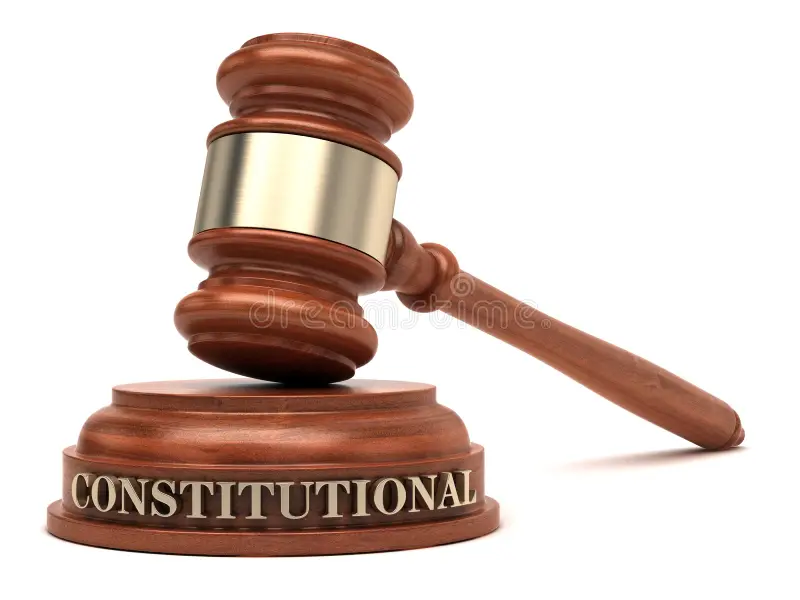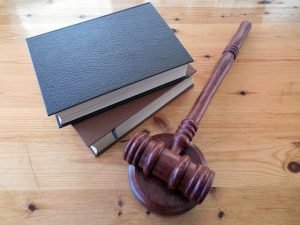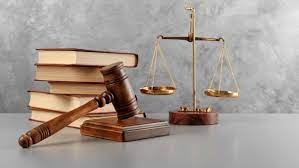- +92 302-6644789
- info@qanoonhouse.com
- Office No. 5, 2nd Floor, Laraib Plaza, Karachi Company, G-9 Markaz, Islamabad, Pakistan.
Constitutional law practice in Pakistan Constitutional lawyers of Qanoon House
Constitutional law is a vital branch of law that governs the powers, functions, and structure of governmental bodies such as the executive, parliament, and judiciary, as well as the fundamental rights of citizens. Constitutional law holds immense significance in Pakistan as it shapes the legal framework that guides the nation. This article explores constitutional law practice in Pakistan, highlighting the role of constitutional petitions and the expertise of constitutional lawyers in upholding justice and safeguarding individual rights.

UNDERSTANDING THE CONSTITUTION
The Constitution of Pakistan is the supreme law of the land, serving as the foundation for the country’s governance. It establishes the rights and responsibilities of citizens, outlines the structure of government, and sets forth the principles by which the nation operates. The Constitution is a living document that evolves, adapting to societal changes and addressing emerging legal issues.
CONSTITUTIONAL PETITIONS SEEKING JUDICIAL REMEDIES
Constitutional petitions provide a legal mechanism for individuals and groups to seek redress for violations of their constitutional rights. A constitutional petition can be filed in the High Courts under Article 199 of the Constitution or in the Supreme Court under Article 184. These petitions allow aggrieved parties to challenge actions, decisions, or laws that infringe upon their fundamental rights or contravene constitutional provisions.
TYPES OF CONSTITUTIONAL WRITS
Writ of Mandamus
This writ compels a public authority or lower court to perform a specific duty within its legal obligations.
Writ of Certiorari
It enables the higher courts to review the decisions of lower courts, tribunals, or public authorities to ensure they adhere to the principles of justice and legality.
Writ of Habeas Corpus
This writ safeguards individual liberty and protects against unlawful detention or imprisonment, providing a remedy to secure the release of a person held violating their constitutional rights.
Writ of Procedendo
This writ directs a lower court to proceed with a delayed judgment, preventing a denial of justice due to unreasonable delays.
Writ of Prohibition
It restrains a lower court or authority from exceeding its jurisdiction or acting beyond the scope of its legal authority.
Writ of Quo Warranto
This writ challenges the legality of a person’s claim to hold a public office, requiring them to prove the authority by which they have the position.

Legal Services
Our Attorney

Popular Service
Provincial Tax Authorities
Misc. Services
Recent Article
THE ROLE OF CONSTITUTIONAL LAWYERS
Constitutional lawyers play a crucial role in practicing constitutional law in Pakistan. They possess in-depth knowledge of constitutional provisions, principles, and case law, enabling them to advocate for protecting individual rights and enforcing constitutional obligations effectively. The expertise of constitutional lawyers includes the following:
PETITION PREPARATION
Constitutional lawyers assist individuals and groups in preparing constitutional petitions, ensuring they articulate the violation of fundamental rights and the legal arguments supporting their claims.
COURT REPRESENTATION
Constitutional lawyers represent clients in High Courts and the Supreme Court, presenting their cases and advocating for the protection of constitutional rights. They possess strong oral advocacy skills and can offer legal arguments persuasively.
LEGAL RESEARCH AND ANALYSIS
Constitutional lawyers conduct extensive legal research to identify relevant constitutional provisions, precedent cases, and legal principles that support their client’s claims. They analyze complex legal issues and provide sound legal advice.
CONSTITUTIONAL INTERPRETATION
Constitutional lawyers interpret constitutional provisions and apply them to specific cases, ensuring that their client’s rights are safeguarded and protected within the framework of the Constitution.
JUDICIAL REVIEW
Constitutional lawyers engage in judicial review, scrutinizing legislative and executive actions for their conformity with the Constitution. They challenge laws or actions that infringe upon constitutional rights or exceed the authority granted by the Constitution.
Constitutional Law in Pakistan: Safeguarding the Rights and Protections of Citizens
Constitutional law in Pakistan is a crucial framework that establishes citizens’ rights, protections, and responsibilities. It is a fundamental pillar of the legal system that ensures the principles of justice, equality, and democracy. This article explores the provisions that constitutional law provides to the citizens of Pakistan, emphasizing the fundamental rights and protections enshrined in the Constitution.


PROTECTION OF FUNDAMENTAL RIGHTS
The Constitution of Pakistan guarantees a range of fundamental rights to its citizens. These rights include, but are not limited to:
Right to Life and Personal Liberty
Citizens have the inherent right to life and liberty, safeguarding them from arbitrary arrests or detentions without due process of law.
Right to Equality
The Constitution ensures equality before the law, prohibiting discrimination based on race, religion, caste, sex, or place of birth. It promotes equal opportunities for all citizens.
Freedom of Speech and Expression
Citizens enjoy the freedom of speech, allowing them to express their opinions, ideas, and beliefs without fear of censorship or reprisal.
Freedom of Religion
The Constitution guarantees the freedom to practice and profess any religion or belief, protecting citizens’ rights and fostering religious harmony.
Right to Education
Every citizen has the right to education, and the state is responsible for providing free and compulsory education up to a certain age.
Protection of Property Rights
The Constitution protects citizens’ property rights, ensuring they cannot be deprived of their property except by the law and with just compensation.
Right to a Fair Trial
Citizens are entitled to a fair and impartial trial, which includes the right to legal representation, the presumption of innocence, and the opportunity to present evidence and witnesses in their defense.
Freedom of Assembly and Association
Citizens can peacefully assemble and form associations, allowing them to participate in public affairs and express their collective opinions.
Right to Information
The Constitution provides citizens the right to access information held by public bodies, promoting transparency and accountability in governance.
Right to Privacy
Citizens enjoy the right to privacy, safeguarding their personal information, correspondence, and private life from unwarranted intrusion.

ROLE OF THE CONSTITUTION IN GOVERNANCE
The Constitution of Pakistan establishes the framework for the governance of the country. It outlines the structure and functions of the government, including the executive, legislative, and judicial branches. The Constitution sets forth the procedures for the election of representatives, ensuring citizens’ participation in the democratic process. It also establishes checks and balances among the branches of government to prevent abuse of power and maintain the rule of law.
LEGAL PROTECTIONS AND SAFEGUARDS
Constitutional law provides citizens with legal protections and safeguards to uphold their rights. These include:
Judicial Review
The Constitution empowers the judiciary to review the constitutionality of laws, executive actions, and government policies. The courts can strike down laws that violate constitutional provisions, providing a mechanism for citizens to challenge unconstitutional acts.
Habeas Corpus
Citizens have the right to petition the courts for the writ of habeas corpus, which safeguards against unlawful detention or imprisonment.
Right to Constitutional Remedies
The Constitution grants citizens the right to seek legal remedies through constitutional petitions to protect their fundamental rights and challenge violations.
Independent Judiciary
The Constitution establishes an independent judiciary that acts as a guardian of citizens’ rights and ensures the enforcement of constitutional provisions.


QANOON HOUSE: EXPERT LAWYER SERVICES IN CONSTITUTIONAL LAW
Qanoon House is a renowned law firm that specializes in providing expert legal services in constitutional law in Pakistan. With a team of highly skilled and experienced lawyers, Qanoon House is committed to upholding constitutional rights, promoting justice, and ensuring the protection of citizens’ fundamental freedoms. This article highlights the exceptional expertise and services offered by Qanoon House in the field of constitutional law.
UNPARALLELED EXPERTISE IN CONSTITUTIONAL LAW
Qanoon House boasts a team of dedicated lawyers who possess extensive knowledge and experience in constitutional law. They are well-versed in the intricacies of the Constitution of Pakistan and its interpretation by the judiciary. With their profound understanding of constitutional principles, Qanoon House lawyers provide clients with comprehensive legal advice and representation in matters related to constitutional law.
WIDE RANGE OF CONSTITUTIONAL LAW SERVICES
Qanoon House offers a diverse range of legal services in the field of constitutional law, catering to the unique needs of individuals, organizations, and government bodies. Some of the key areas in which Qanoon House excels include:
CONSTITUTIONAL RIGHTS PROTECTION
Qanoon House is committed to protecting the fundamental rights guaranteed by the Constitution of Pakistan. Their lawyers adeptly handle cases involving violations of rights such as freedom of speech, right to a fair trial, right to equality, and religious freedom, among others.
CONSTITUTIONAL PETITIONS
Qanoon House specializes in preparing and filing constitutional petitions on behalf of clients. Whether it is challenging unconstitutional laws, seeking remedies for rights violations, or addressing issues related to governance, their lawyers are well-versed in navigating the intricacies of constitutional petitions.
JUDICIAL REVIEW
Qanoon House lawyers are proficient in conducting judicial reviews of legislative and executive actions to ensure their conformity with constitutional principles. They skillfully challenge actions that exceed the authority granted by the Constitution or infringe upon the rights of individuals or organizations.
CONSTITUTIONAL INTERPRETATION
With a deep understanding of constitutional provisions and case law, Qanoon House lawyers offer expert advice on the interpretation of constitutional provisions. They assist clients in understanding their rights and obligations within the framework of the Constitution.
CONSTITUTIONAL CONSULTANCY
Qanoon House provides comprehensive constitutional consultancy services to government bodies, organizations, and individuals. Their lawyers offer guidance on matters related to constitutional compliance, legal obligations, and constitutional reforms.
CLIENT-CENTERED APPROACH
Qanoon House prioritizes client satisfaction and adopts a client-centered approach in all its legal services. They carefully listen to their client’s concerns, thoroughly assess their cases, and develop tailored legal strategies to achieve the best possible outcomes. Qanoon House lawyers maintain open lines of communication, keeping clients informed at every stage of the legal process.
REPUTATION AND TRACK RECORD
Qanoon House has built a strong reputation in the legal community for its exemplary services in constitutional law. Their track record includes successful representation of clients in high-profile constitutional cases, landmark judgments, and contributions to the development of constitutional jurisprudence in Pakistan.
THE CRUCIAL ROLE OF CONSTITUTIONAL LAW IN THE JUSTICE SYSTEM OF PAKISTAN
Constitutional law plays a pivotal role in shaping the justice system of Pakistan. It serves as the foundation upon which the legal framework operates, ensuring the protection of citizens’ rights, establishing checks and balances, and promoting a just and equitable society. This article explores the indispensable role of constitutional law in the justice system of Pakistan, highlighting its impact on the rule of law, individual rights, and the overall administration of justice.
UPHOLDING THE RULE OF LAW
Constitutional law is a cornerstone in upholding the rule of law, essential for a just and orderly society. The Constitution of Pakistan establishes the framework within which laws are made, interpreted, and enforced. It sets out the rights and obligations of citizens, the limitations on government powers, and the principles that guide the justice system. The justice system maintains fairness, predictability, and accountability by adhering to constitutional principles and ensuring their application.
PROTECTION OF INDIVIDUAL RIGHTS
One of the primary functions of constitutional law is to safeguard individuals’ fundamental rights and freedoms. The Constitution of Pakistan guarantees many rights, including the right to life, liberty, equality, freedom of speech, religion, and due process. Constitutional law ensures these rights are protected and enforced by providing mechanisms such as constitutional petitions, judicial review, and the doctrine of fundamental rights. It empowers citizens to challenge any violation of their constitutional rights, seeking redress and ensuring accountability.


CHECKS AND BALANCES
Constitutional law establishes a system of checks and balances that ensures the separation of powers among the three branches of government: the executive, the legislature, and the judiciary. This separation of powers prevents any unit from exerting excessive control and helps maintain a balance of authority. As the guardian of the Constitution, the court exercises the power of judicial review, examining the constitutionality of laws and executive actions. This crucial function ensures that government actions remain within the limits set by the Constitution, preventing abuse of power and safeguarding individual rights.
CONSTITUTIONAL INTERPRETATION
The interpretation of constitutional provisions is another vital aspect of constitutional law in the justice system. The courts, particularly the Supreme Court, play a crucial role in interpreting the Constitution and its provisions. Through judicial interpretation, the courts clarify the meaning and scope of constitutional provisions, resolve legal disputes, and provide guidance for future cases. Constitutional interpretation helps shape the law, ensures consistency, and adapts the Constitution to evolving societal needs and values.
CONSTITUTIONAL REFORM AND EVOLUTION
Constitutional law also facilitates the process of constitutional reform and evolution. As society progresses and new challenges emerge, the Constitution may require amendments to reflect the changing needs of the people. Constitutional law provides the framework and procedures for amending the Constitution, allowing for necessary modifications to address social, political, and legal developments. By enabling constitutional reform, the justice system remains responsive and adaptive, aligning with the evolving demands of society.
Karachi Office:
Right Law Associates (QANOON GROUP), M-51, M-52, Muneer Mobile Mall, Opposite Jauhar Chowrangi Bridge, Near Jauhar Chowrangi & Perfume Chowk, Block 17, Gulistan-e-Jauhar, Karachi, Pakistan
Islamabad Office:
Pakistan Legal Advisors (QANOON GROUP), Office No. 5, 2nd Floor, Laraib Plaza, Near TCS Express Centre, Karachi Company, G-9 Markaz, Islamabad, Pakistan
Lahore Office:
Qanoon Online (QANOON GROUP), Office No. 2, 1st Floor, Al-Mairaj Arcade, Adjacent Surayya Azeem Trust Hospital, Chauburji Chowk, Lahore, Pakistan
Copyright © 2023 Design by Digitocrate (Pvt) LTD
